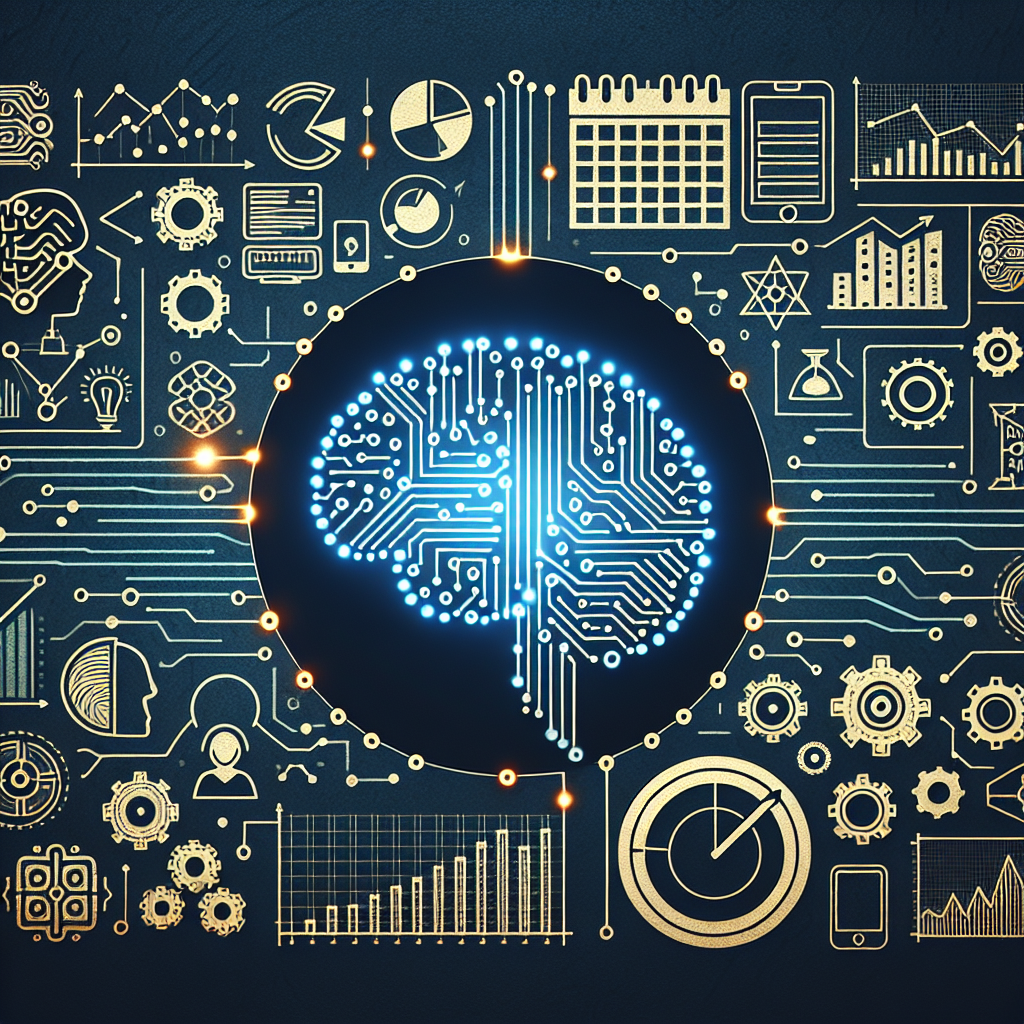Artificial Intelligence (AI) has become a powerful tool in project planning, helping organizations streamline processes, improve efficiency, and drive better decision-making. From predicting project timelines to optimizing resource allocation, AI is transforming the way projects are planned and executed. In this article, we will explore the benefits of AI in project planning and how organizations can leverage this technology to achieve their project goals.
1. Improved accuracy and efficiency
One of the key benefits of AI in project planning is its ability to improve the accuracy and efficiency of project management processes. AI algorithms can analyze large amounts of data and identify patterns and trends that humans may not be able to detect. This allows project managers to make more informed decisions and predict potential risks and obstacles before they occur.
AI can also automate repetitive tasks, such as data entry, scheduling, and resource allocation, freeing up project managers to focus on more strategic activities. By reducing the time and effort required to manage projects, AI can help organizations complete projects faster and more efficiently.
2. Enhanced decision-making
AI can help project managers make better decisions by providing real-time insights and recommendations based on data analysis. For example, AI algorithms can analyze project data to identify potential bottlenecks, risks, and opportunities, allowing project managers to take proactive measures to address issues before they escalate.
AI can also help project managers optimize resource allocation by analyzing data on team performance, workload, and skill sets. By matching resources to tasks more effectively, organizations can improve productivity, reduce costs, and deliver projects on time and within budget.
3. Predictive analytics
AI can help project managers predict project outcomes and anticipate potential challenges by using predictive analytics. By analyzing historical project data and identifying patterns and trends, AI algorithms can forecast project timelines, costs, and risks with a high degree of accuracy.
Predictive analytics can help project managers identify potential delays, budget overruns, and quality issues before they occur, allowing them to take corrective action and mitigate risks. By using AI to predict project outcomes, organizations can improve project planning, optimize resource allocation, and increase the likelihood of project success.
4. Real-time monitoring
AI can provide real-time monitoring of project progress, allowing project managers to track key metrics, identify issues, and make adjustments as needed. AI algorithms can analyze data from multiple sources, such as project management software, sensors, and IoT devices, to provide a comprehensive view of project performance.
Real-time monitoring can help project managers identify trends, patterns, and anomalies in project data, enabling them to make informed decisions quickly and effectively. By using AI to monitor project progress in real time, organizations can improve project visibility, control, and agility.
5. Enhanced collaboration
AI can facilitate collaboration among project teams by providing a centralized platform for sharing information, communicating, and coordinating activities. AI-powered project management tools can streamline communication, automate workflows, and facilitate knowledge sharing, enabling teams to work together more effectively.
AI can also help project managers identify and resolve conflicts, align goals and priorities, and foster a culture of collaboration and innovation. By using AI to enhance collaboration, organizations can improve team performance, creativity, and satisfaction.
FAQs
Q: How can AI help project managers optimize resource allocation?
A: AI can help project managers optimize resource allocation by analyzing data on team performance, workload, and skill sets. By matching resources to tasks more effectively, organizations can improve productivity, reduce costs, and deliver projects on time and within budget.
Q: Can AI predict project outcomes accurately?
A: Yes, AI can predict project outcomes accurately by using predictive analytics. By analyzing historical project data and identifying patterns and trends, AI algorithms can forecast project timelines, costs, and risks with a high degree of accuracy.
Q: How can AI improve decision-making in project planning?
A: AI can improve decision-making in project planning by providing real-time insights and recommendations based on data analysis. AI algorithms can analyze project data to identify potential bottlenecks, risks, and opportunities, allowing project managers to make informed decisions and take proactive measures to address issues.
Q: What are the benefits of real-time monitoring in project management?
A: Real-time monitoring in project management can help project managers track key metrics, identify issues, and make adjustments as needed. AI-powered tools can provide real-time insights into project progress, enabling project managers to improve visibility, control, and agility.
In conclusion, the benefits of AI in project planning are significant, including improved accuracy and efficiency, enhanced decision-making, predictive analytics, real-time monitoring, and enhanced collaboration. By leveraging AI technology, organizations can streamline project management processes, optimize resource allocation, and improve project outcomes. As AI continues to evolve, its role in project planning will become even more essential, helping organizations achieve their project goals more effectively and efficiently.

